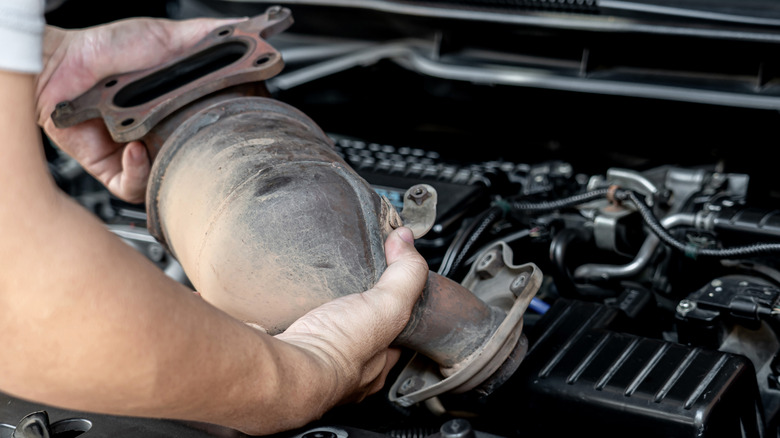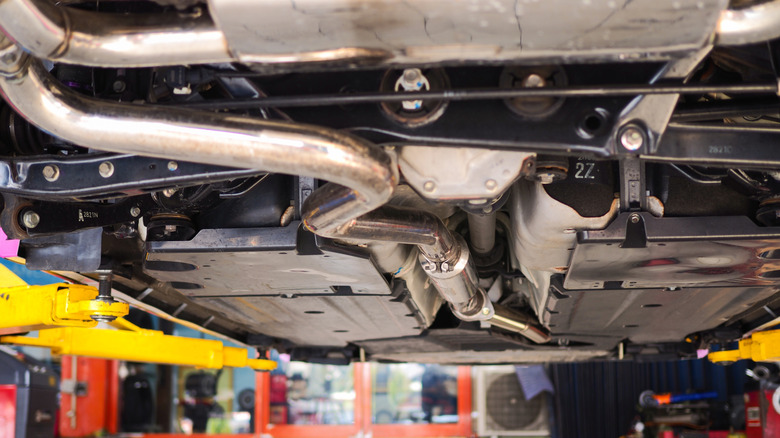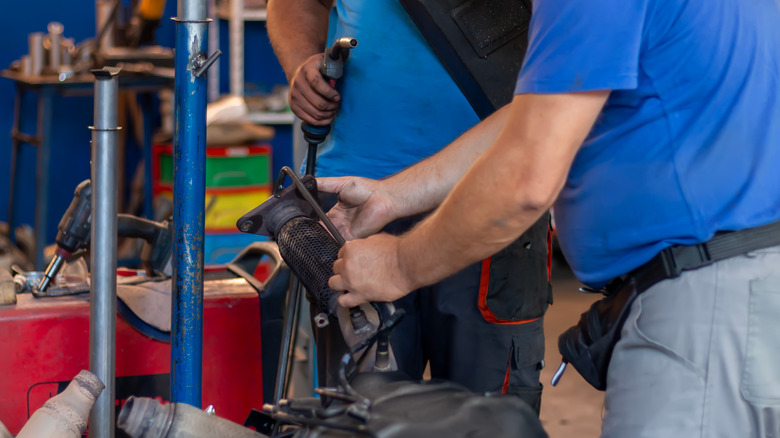How Long Do Catalytic Converters Typically Last, And Can You Extend Their Lifespan?
Introduced in 1974 by General Motors, catalytic converters were a byproduct of the 1970 Clean Air Act, which aimed at improving air quality in the U.S. by curbing smog emissions that were choking U.S. cities. Since then, catalytic converters have been used by most cars to convert harmful exhaust gases such as nitrogen oxides, carbon monoxide, and hydrocarbons into less harmful emissions. Although very effective, catalytic converters are not designed to last forever and will, at some point, inevitably fail. So, how long do catalytic converters typically last?
According to the U.S. EPA, catalytic converters, if properly maintained, should last for the entire life of the car. It's also worth noting that the 1990s Clean Air Act amendments have imposed a rule where catalytic converters are covered by a Federal Emissions Warranty for a minimum of 8 years or 80,000 miles. The law also makes it clear that owners must properly maintain their converters to be covered by the warranty.
How to make your catalytic converter last longer
Many issues with the engine and its associated systems can wear on the converter. For instance, if the air and fuel mixture is overly saturated with air, it will burn the fuel within the converter. An exhaust leak could also cause excessive burning, while engine misfires will send unburned fuel directly into the converter, where it could cause the same issues. If they are left unchecked for long, they can even melt the converter.
Two major causes of premature converter failures are sintering and contamination, where constant heating and cooling cycles paired with lead, calcium, phosphorus, and sulfur from oil or fuel, slowly erode the area around the converter. A study by Hakan Kaleli at ResearchGate has shown amounts of predominantly phosphorus, sulfur, and zinc deposited on the catalyst and that such deposits are found to shorten the converter's life. Owners should use the manufacturer's recommended oils, high-quality fuel, and repair any oil or fuel leaks that may arise in the future to prevent sintering and contamination from prematurely wearing out the converter.
Cleaning the catalytic converter can also help to prolong its lifespan, while avoiding short trips can also help with combating corrosion. Lastly, it's also important to make sure your cooling system is airtight so it does not let coolant make its way into the converter. If something like this happens, it could destroy the converter in a matter of weeks.
How much does it cost to replace a catalytic converter?
According to RepairPal, the average costs associated with replacing an OEM catalytic converter range between $2,123 and $2,459, while ConsumerAffairs puts the pricing between $900 and $4,500. The costs also vary greatly depending on the vehicle in question and whether it's a luxury car, a hybrid, or a more consumer-friendly vehicle. Moreover, OEM catalytic converters are always going to be more expensive compared to most aftermarket options, which try to offer similar value for less money. For instance, an original VW catalytic converter can cost up to $3,000, while an aftermarket option can be had for $500.
Catalytic converters also use platinum, palladium, and rhodium inside the housing, and this also affects the price of a catalytic converter. Even though there isn't a lot of platinum inside a catalytic converter, materials like these do push the price up by a few hundred dollars. Ultimately, replacing a catalytic converter is not a cheap task. This is why proper maintenance and upkeep can truly make your converter last as long as the car.


